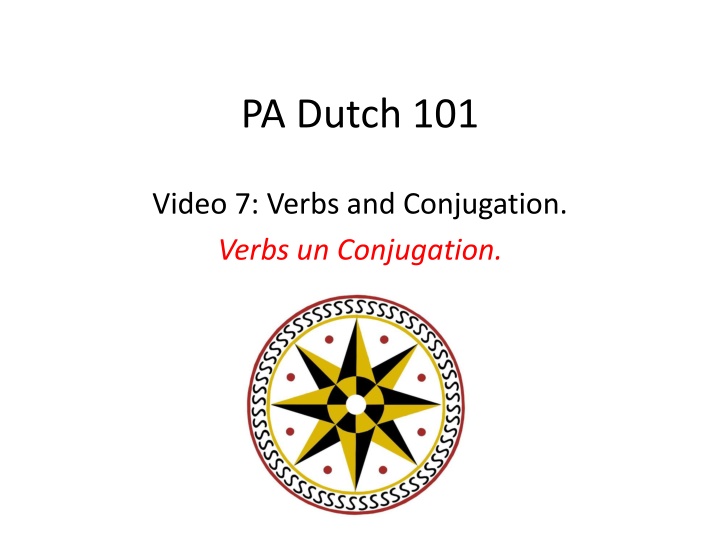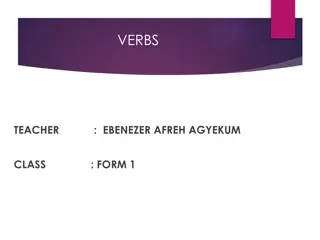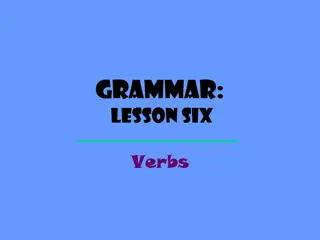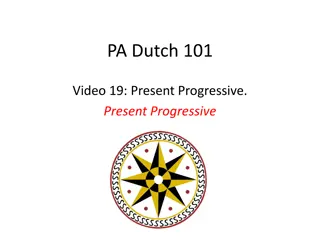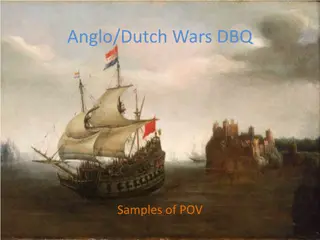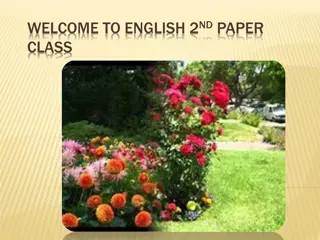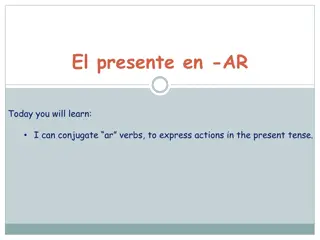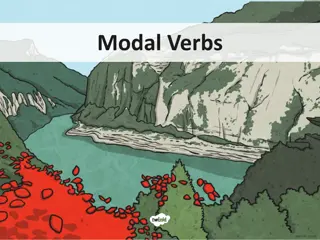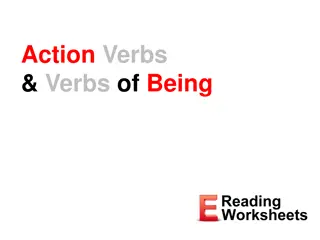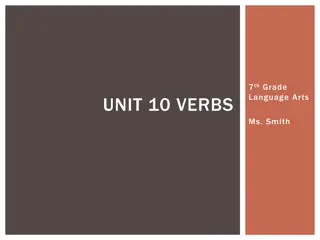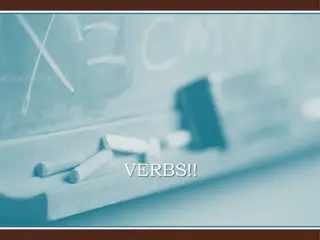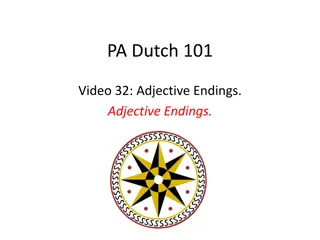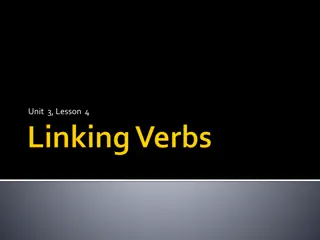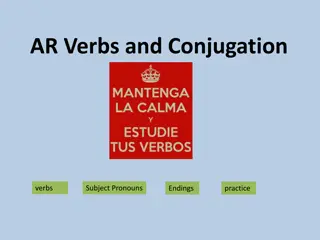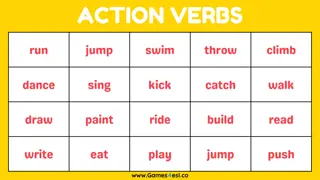Pennsylvania Dutch 101: Verbs and Conjugation
Understanding verbs and conjugation in Pennsylvania Dutch (PD) where verbs change significantly. Learn the rules and exceptions for conjugating PD verbs, including endings for different pronouns and unique cases. Proper verb conjugation is crucial for clear communication. Embrace the differences from English conjugation and master the PD verb system.
Download Presentation

Please find below an Image/Link to download the presentation.
The content on the website is provided AS IS for your information and personal use only. It may not be sold, licensed, or shared on other websites without obtaining consent from the author.If you encounter any issues during the download, it is possible that the publisher has removed the file from their server.
You are allowed to download the files provided on this website for personal or commercial use, subject to the condition that they are used lawfully. All files are the property of their respective owners.
The content on the website is provided AS IS for your information and personal use only. It may not be sold, licensed, or shared on other websites without obtaining consent from the author.
E N D
Presentation Transcript
PA Dutch 101 Video 7: Verbs and Conjugation. Verbs un Conjugation.
Verbsand Conjugation As you learned in school, a Verb is an action word: to jump, to sing, to play. In English and in other languages, verbs conjugate. You have been conjugating verbs your whole life!
Verbs and Conjugation Conjugate the Verb to play in English: I play. You play. He / She plays. We play. You guys play. They play. In English, verbs do not change much when they conjugate in the present tense.
Verbs and Conjugation Unlike English, in PD a verb changes quite a bit. All verbs in PD end in E (saage to say) There are TWO rules for conjugating Verbs in PD. 1. Drop the E off of the end of the verb. 2. Add the correct ENDING!
Verb Endings Singular Plural ich du er, sie, es t no ending mir scht e t e dihr sie
Conjugate a Verb Conjugate the verb saage for each situation: Ich saag eppes. Du saagscht eppes. Er saagt eppes. Mir saage eppes. Dihr saagt eppes. Sie saage eppes.
1stexception to the Rule Verbs who have a stem ending in s,ss,sch: drop these letters before the ending scht is added. esse (to eat) Du escht.
2ndexception to the Rule Verbs whose stem ends in a w, change this letter to b, throughout the singular and in the dihr forms: liewe (to love) Ich lieb. Du liebscht. Er liebt. Mir liewe. Dihr liebt. Sie liewe.
3rdexception to the Rule Verbs whose infinitive ends in ye, have the stem ending ig throughout singular. foliye (to follow, obey) Ich folig. Du foligscht. Er foligt. Mir foliye. Dihr foligt. Sie foliye.
Verb Conjugation Don t be scared by the exceptions! They don t happen very often. Learn the rules and memorize the endings! It is important to conjugate verbs properly. It is the difference between saying: I goes to the store. He go to the store.
Iewing - Practice Conjugate the verbs in parentheses for the following sentences: Ich ____ (wuhne) in Philadelphia. Ich wuhn in Philadelphia. Du ____ (kenne) die Fraa. Du kennscht die Fraa. Der Carl ____ (gehe) in die Schteddel. Der Carl geht in die Schteddel.
Iewing - Practice Mir _____ (kumme) zu re Party. Mir kumme zu re Party. Dihr ____ (bringe) eiere Bicher. Dihr bringt eiere Bicher. Sie (plural) ____ (singe) en Lied. Sie singe en Lied.
Iewing Practice Practice with other Dutch verbs you find in your dictionaries. At this point, just try making simple sentences like: He jumps. / We sleep.
Bis die naegschde Video, Macht s gut un schwetzt Deitsch! E-Poscht schreiwe: busterpa@yahoo.com
